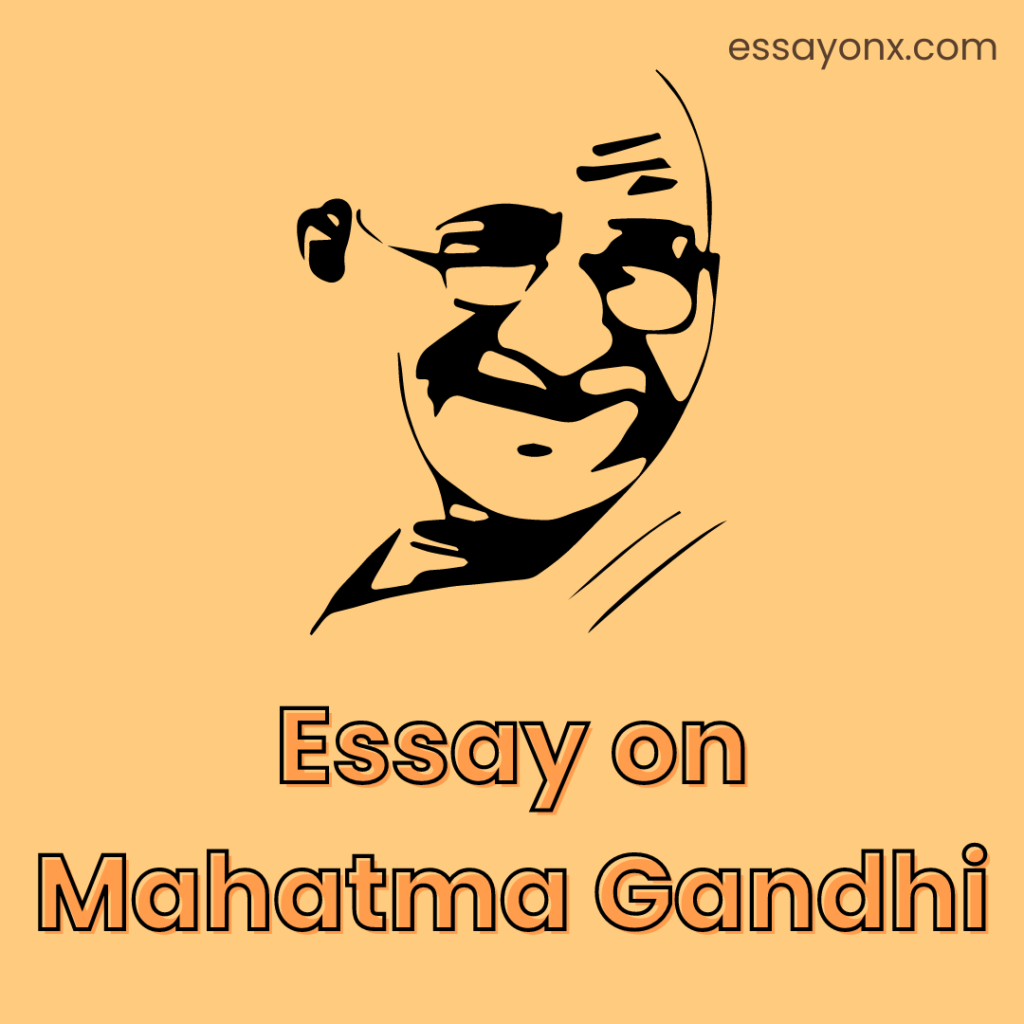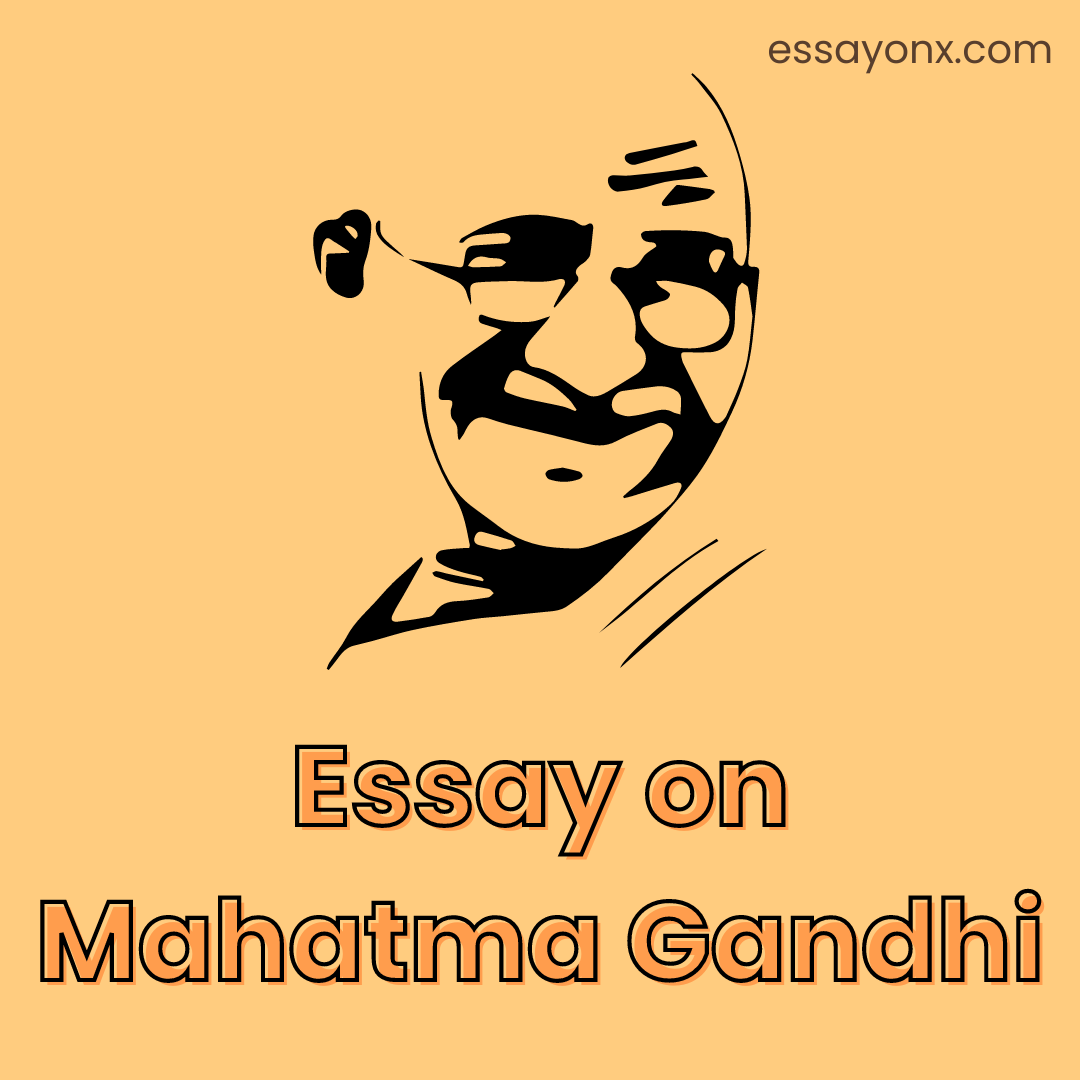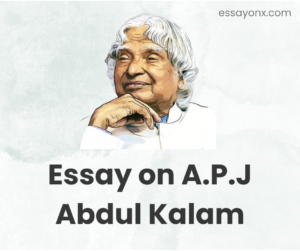Mahatma Gandhi Essay: The Apostle of Peace and Nonviolence :This essay aims to explore the life, philosophy, and enduring legacy of Mahatma Gandhi, emphasizing his pivotal role in India’s struggle for independence and his profound impact on the global stage.
Introduction:
Mahatma Gandhi, reverently known as the Father of the Nation in India, was not merely a political leader but a beacon of hope, a champion of justice, and a symbol of resilience. His life and teachings continue to inspire millions around the world, transcending boundaries of time and space.
Early Life and Formative Years of Mahatma Gandhi:
Mohandas Karamchand Gandhi, born on October 2, 1869, in Porbandar, Gujarat, was raised in a devout Hindu family deeply rooted in Indian culture and values. Despite facing personal challenges and setbacks in his early life, including the loss of his father at a young age, Gandhi displayed remarkable resilience and determination. His formative years were shaped by the values of truth, integrity, and compassion instilled by his mother, Putlibai, and influenced by the teachings of the Bhagavad Gita and other sacred texts.

Philosophy of Satyagraha and Ahimsa:
Central to Gandhi’s philosophy was the concept of Satyagraha, or “truth force,” which advocated for nonviolent resistance as a means of achieving social and political change. Inspired by the teachings of Jesus Christ, Henry David Thoreau, and Leo Tolstoy, Gandhi believed in the power of nonviolence to transform hearts and minds, fostering reconciliation and understanding even in the face of oppression and injustice.
At the core of Gandhi’s philosophy was the principle of Ahimsa, or nonviolence, which he considered as the highest form of resistance against oppression. Gandhi firmly believed that violence only begets more violence, and that true strength lies in the ability to endure suffering without retaliation. His unwavering commitment to nonviolence became the cornerstone of India’s struggle for independence and inspired countless movements for social justice and human rights around the world.
Role in India’s Independence Movement:
Gandhi’s leadership during India’s struggle for independence was characterized by his unwavering commitment to nonviolence, civil disobedience, and peaceful protest. Through his powerful speeches, mass mobilization campaigns, and acts of civil disobedience, Gandhi galvanized the Indian masses in their quest for freedom from British colonial rule.
The Salt March of 1930, wherein Gandhi and thousands of followers marched over 240 miles to the Arabian Sea to produce salt in defiance of British salt taxes, became a watershed moment in India’s independence movement, symbolizing the power of nonviolent resistance and civil disobedience.
Gandhi’s tireless efforts to unite India’s diverse communities, bridge religious and caste divides, and champion the rights of the marginalized sections of society earned him the title of “Mahatma,” meaning “Great Soul.” His commitment to secularism, communal harmony, and social justice continues to serve as a guiding light for nations grappling with issues of identity, diversity, and social cohesion.
Legacy and Global Impact:
The legacy of Mahatma Gandhi extends far beyond the shores of India, transcending geographical and cultural boundaries. His teachings on nonviolence, tolerance, and moral courage have inspired countless leaders, activists, and movements for social change across the globe.
From Martin Luther King Jr. and Nelson Mandela to Cesar Chavez and Aung San Suu Kyi, Gandhi’s influence can be seen in the struggles for civil rights, democracy, and human dignity around the world. His message of peace, tolerance, and compassion remains as relevant today as it was during his lifetime, offering a timeless blueprint for building a more just, equitable, and peaceful world.
Conclusion:
Mahatma Gandhi’s life and teachings continue to resonate with people of all ages and backgrounds, reminding us of the enduring power of truth, nonviolence, and compassion in the face of adversity. As we reflect on Gandhi’s legacy, let us strive to emulate his principles of Satyagraha and Ahimsa in our own lives, promoting dialogue, understanding, and reconciliation in a world too often divided by hatred and conflict. In the words of Gandhi himself, “Be the change that you wish to see in the world.”


